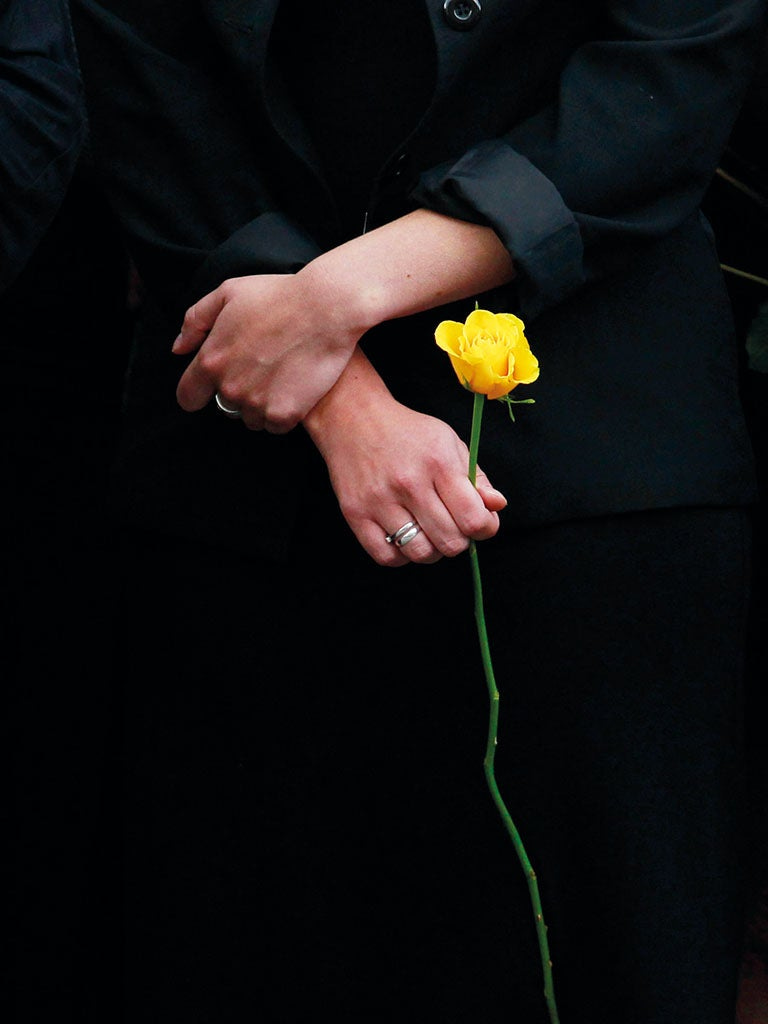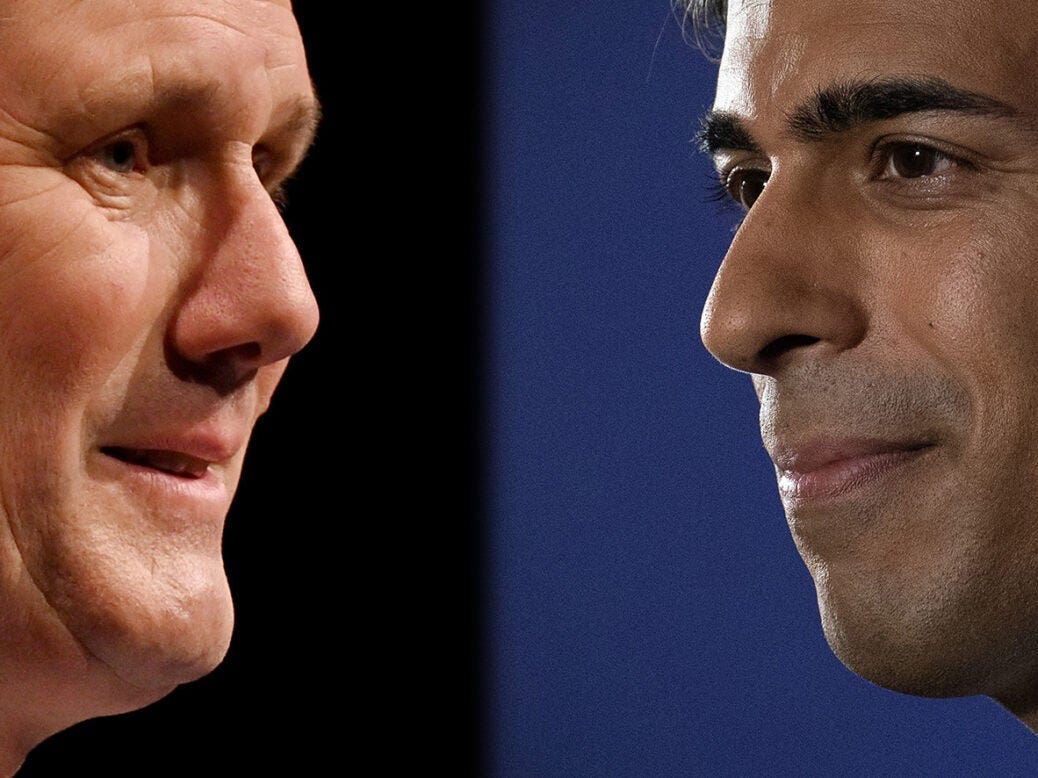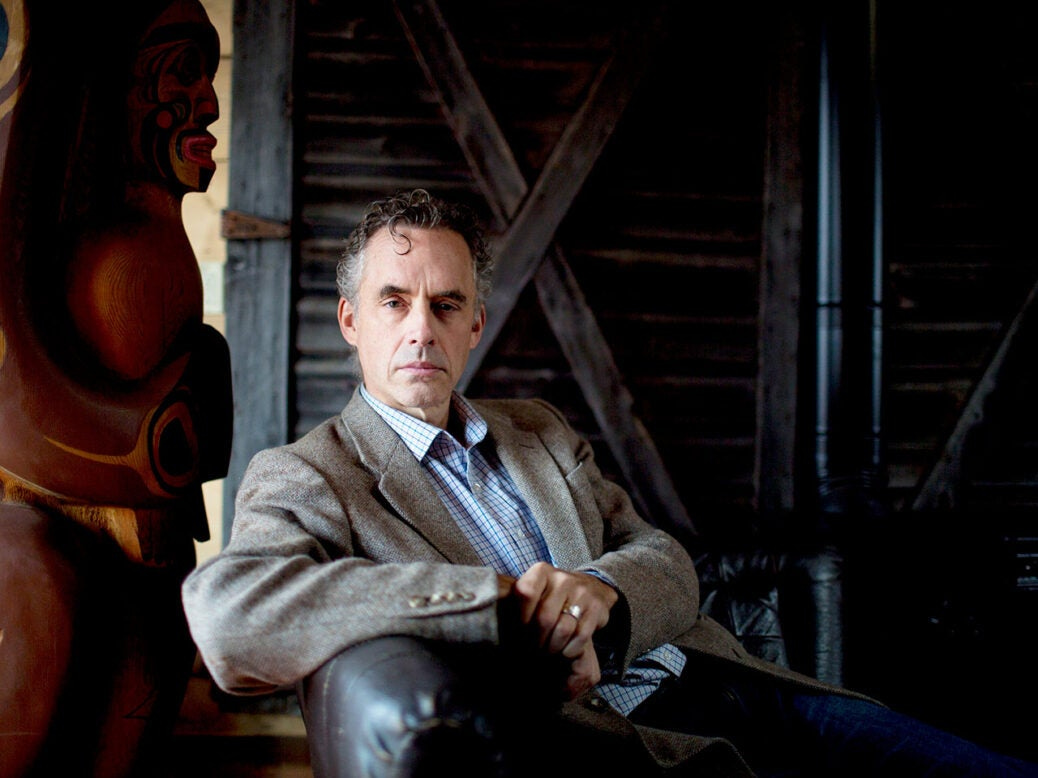The Saturday Read: 10 pieces for your weekend
Your new guide to the best writing – every Saturday from the New Statesman.
Good morning, and welcome to the third edition of the Saturday Read, the New Statesman’s new guide to the best writing on ideas, politics, books and culture each weekend. This is Will Lloyd. The Saturday Read editor, Harry Lambert, has written this week’s sign-off. We have ten superb stories from the New Statesman, a handful of other NS articles you might like, and 15 links to pieces from across the media.
This week I interviewed a lord. Not just a lord either, a general too. Richard Dannatt has sent thousands of men into battle and negotiated with some of the most powerful politicians of the last 30 years. I found myself disagreeing with much of what he said about Britain’s involvement in Iraq, but I couldn’t quite bring myself to say so.
Can you be cutting to a lord? It bothered me for days after we spoke. And then I realised: it was exactly this – ridiculous deference – that helped get Britain into that terrible mess in Iraq. Soldiers had too much respect for politicians. Politicians had too much respect for soldiers. As for journalists, most of them were MIA in 2003. We should all be more frank with each other, and say what we mean, in the moment.
Anyway, let us know what you think of the newsletter by emailing us. If the pieces below interest you, why not try a trial subscription to the NS? You can read up to three free articles after registering on the New Statesman website. A digital subscription is just 95p a week. Let’s get to it.
1. “If I asked you to look after £75bn, where would you put it?”
Will Dunn, our business editor, untangles how a $200bn institution was brought low by a bad bet, social media and central banks. Who killed Silicon Valley Bank? This was the piece the Drudge Report emblazoned across its site this week to answer that question. Well:
It would seem the person to blame is the person at SVB who decided to bet an eleven-figure sum on interest rates not rising when inflation was already beginning to appear. But as investors’ confidence in SVB fell, the run on the bank was precipitated and accelerated by the speed at which rumours and opinions are now able to spread. Ironically, the (social) network effects that made Silicon Valley rich were the undoing of Silicon Valley Bank. When those central to the networks – prominent venture capitalists – began advising their portfolio companies to leave SVB, what might have been a survivable balance-sheet problem became a fatal liquidity crisis.
2. “It all started with one person and grew and grew, and in the end the whole world knew about this little English town.”
How do you mourn soldiers killed in an unjust war? In the late Noughties, as Britain sunk ever deeper into the mire in Iraq and Afghanistan, that question loomed over the nation. In this moving long read, Jason Cowley takes us back and forth, between the front lines of the war on terror and the tiny English town of Wootton Bassett, where slowly, painfully and organically, an answer to that question began to emerge. (You can also listen to Jason’s piece as an Audio Long Read here.)
The repatriation ceremonies in Wootton Bassett were quite different from the more familiar, grand, dignified state-organised services of national remembrance for all rather than individuals. The Wootton ceremonies did not come from orders of the state and did not take place in churches or gardens of remembrance; they happened spontaneously, in public, in the high street. Until 2000 the town had a memorial hall rather than a cenotaph; the stone war memorial – raised hands carrying the weight and burden of the globe – was built following local fundraising efforts and would become the focal point of the liturgy of the repatriations.
What we witnessed in Wootton Bassett during those four years of the repatriations was nothing less than an act of national commemoration. But it was unofficial, of the people and for the dead soldiers and their families; political leaders did not come and the royal family were not represented. “No one organised it, no one requested it,” the Royal British Legion’s former national president, Lieutenant General Sir John Kiszely, said. “It happened because it was the right thing to do.”
3. “Have we witnessed the passing of the Washington consensus?”
In a major new essay, Angela Nagle explains how the world came to be bitterly divided between “three vast economic and political unions: China, Europe and the US – each involved in a centralised, state-directed development race, with renewable technology at the forefront.” Free trade and globalisation are under more suspicion than ever before in Washington and Brussels and Beijing. To understand how this happened, Nagle argues, you have to ignore the theories of Adam Smith and Karl Marx and, instead, turn to the great theorists of economic nationalism: Friedrich List and Henry Charles Carey.
For all the talk of Western decline and decadence, it is extraordinary to see what a little geopolitical pressure can do. To establish pax Americana, the “old continent” had to make a more peaceful and humble liberal cosmopolitan anti-nationalism its official moral system, but is this not implicitly a civilisational alliance we are seeing?
The Western world is returning to 19th-century development strategies, marshalling the power of an active state, in science, technology, industry and military power against an emerging counter-alliance of Russia, China and maybe Iran. The question is not whether it will lead to conflict or not. The conflict has already begun in Ukraine. The question is only how and when it will end and a new global settlement is formed.
4. “The age of big government… turns out to be very much alive.”
As British politics heads towards an election, and the rhetoric escalates, a banal reality is revealing itself: Labour and the Tories are moving closer together. There is, George Eaton writes this week, a quiet consensus developing between the parties. Policies that were once dismissed by the right as Marxist are now announced in Tory budgets, as Jeremy Hunt showed this week. Both parties are accepting of a bigger state, of Brexit, of clamping down on crime. Is political radicalism dead?
Yes, at the next election Labour will commit to spend more and the Conservatives will commit to tax less. But both are wary of deviating from economic orthodoxy (Labour recalls the fate of Corbyn and McDonnell; the Conservatives the fate of Truss and Kwasi Kwarteng). Whichever party wins power, most of the pillars of the Thatcherite settlement will endure: privatised utilities, a flexible labour market, a financialised economy.
For some this represents progress: a domestic version of Barack Obama’s foreign policy maxim, “Don’t do stupid shit”. But it is often when bipartisan consensus is at its strongest that the greatest mistakes are made: witness the Iraq War 20 years ago this month or the pre-crash mania for financial deregulation. It is not only the sleep of reason that breeds monsters; it is also the sleep of dissent.
5. “If you don’t want to listen, and it’s not convenient to listen, you don’t hear.”
This week, I interviewed General Lord Richard Dannatt. At the height of Britain’s involvement in Iraq, and as it prepared to escalate the war on terror by committing thousands more troops to Afghanistan, Dannatt was the professional head of the British Army. He faced an impossible job. Lose face in Iraq, and upset New Labour. Conduct operations on a shoestring in the Middle East, and endanger the soldiers he was tasked with leading. Refuse to fight in Afghanistan, and lose the confidence of the United States.
“To admit that we were no longer “top table”, that Britain could no longer fight two wars at the same time, that we could no longer do more and more with less and less, that “muddling through” was not charming but deadly, and would in the long run, destroy the British Army and make its remnants no longer worthy of the name, was not something Dannatt was prepared to do. To admit that would be to admit too much, for it would reveal that what had taken centuries of blood and treasure to maintain no longer existed, and that, in truth, the British did have more in common with Belgium or the Netherlands than the United States.”
6. “There were so many red flags.”
Sex bargains, child neglect and domestic servitude: the dark side of Britain’s scheme for Ukrainian refugees – Polly Bindman investigates, one year to the week after Boris Johnson announced the scheme. (Harriet Marsden has also written about her first-hand experience of the scheme.) In many cases, relationships between hosts and guests have blossomed. But for a few, they’ve broken down entirely, as Polly reveals using new data obtained by the New Statesman.
Nearly two thirds (62 per cent) of councils said that on at least one occasion they had to escalate concerns of illegal or inappropriate behaviour from both hosts and guests to either the police, social services, the Department for Housing, Levelling Up and Communities or the Home Office. One third of councils said they’d reported hosts to the police for reasons including “exploitation, domestic servitude, fraudulent sponsorship or controlling behaviour”, or to social services for reasons including “child’s safety, expectation of work, children being left without appropriate supervision”.
7. “Poor old Jacques, he just doesn’t get it.”
Few come out alive from this Geoffrey Wheatcroft investigation into how Britain went to war in 2003, especially Tony Blair, Alastair Campbell, and the journalists who Wheatcroft thinks abetted them.
As Blair well knew, the true purpose of the war wasn’t to prevent the proliferation of weapons of mass destruction (WMD) but regime change, albeit in contravention of international law and the UN. The neoconservatives in Washington, and Cheney and Rumsfeld, who wanted to enhance and project American power, made no secret of their contempt for international law and their loathing of the UN. Blair’s task was to sell this war to Labour MPs and a liberal media who professed to revere international law and the UN.
The Tories and the right-wing press had become so in awe of American power that they failed to anticipate the coming catastrophe. If that failure was lamentable, the liberal press was dismaying. The Observer fell right behind Blair and his war, and while the Guardian didn’t wholeheartedly support the invasion, it wrote in a leader on 12 March 2003 that “there is one thing Mr Blair cannot be accused of: he may be wrong on Iraq, badly wrong, but he has never been less than honest”. Who could possibly say that today? This was a disastrous failure of journalistic scepticism.
8. “We learn nothing.”
Megan Gibson, our international editor, has written a finely tuned, haunting interview with James Bluemel, the director of Once Upon a Time in Iraq, the five-part BBC series which in 2020 retold the story of the war from the perspective of the soldiers and civilians who experienced it. (“The politicians have had their say,” the series memorably began.)
As an adult, Adel still in many ways embodied the effects of the conflict – in her eagerness to talk, her composure in grief, and her matter-of-fact desire for vengeance. (“I hope that what happened to Iraq happens to America,” she says calmly at one point. “I never wished harm on anyone – but I wish it upon them.”)
Bluemel also includes extraordinary footage of the moments between interview sessions where the subjects are being filmed but appear unguarded. They ask their own questions or for reassurance that they don’t “sound naive”; they smoke endless cigarettes and cigars; they laugh over old photographs or cry at archive footage.
One unforgettable subject, a bearded US marine with Rambo-like biceps, requests swigs of tequila straight from the bottle – a moment that contextualises his over-the-top swagger, his bizarrely candid admittance that he mistakenly killed civilians, including children, and his insistence that the invasion was “worth it”. “It has to be worth it,” he says, his voice brittle, after a brief silence. “What’s the alternative?”
9. “Labour has spotted an opportunity to claim ground on childcare, which makes its current vagueness baffling.”
We place huge ideological value on childcare, but do not recognise it as work or reward it financially, writes Sophie McBain this weekend. Instead, when care is outsourced, we cheapen it, regarding it as a low-pay and low-status. How do we change that?
I once asked a wildly successful friend who has three children and a high-flying husband how they juggled it all. “I have a wife,” she said dryly: a live-in nanny who did everything that would have been expected of the archetypal Fifties housewife. The nanny cared for the baby, did the school runs, cleaned the house and did the laundry, cooked, babysat and stepped in to solve problems like bouts of chickenpox or last-minute World Book Day costumes. It sounds too much to expect one person to do – but then this gets to the heart of the problem, doesn’t it? Most workplaces operate on the assumption that employees have a “wife”: someone else who runs the household and enables workers to clock in long workdays, five days a week.
10. Jordan Peterson has become the internet’s village idiot.
A widely under-reported fact: Jordan Peterson is now a figure of fun on the online right. The clinical psychologist used to generate memes that praised him, now the reverse is true. He just keeps doing… embarrassing things. Charlie Nash has the story:
Peterson mistook a pornographic BDSM video of a “male milking” machine for a dystopian Chinese government breeding farm. “Such fun in unbelievable techno-nightmare CCP hell,” he tweeted, completely unaware that this purported Chinese Communist Party medical facility was actually located in south-west England. There, the room was part of dominatrix Mistress Jane’s by-appointment “fetish dungeon”.
Elsewhere on the NS
John Gray sounds the alarm on Ukraine. Twenty years after the invasion of Iraq, are a new generation of liberal hawks, “who view Ukraine as the pivotal battlefield in a global struggle for democracy”, leading us into another quagmire?
Jon Holmes, Gary Lineker’s agent, writes about one of the strangest weeks of his career, in an NS Diary that was widely picked up this week.
Emma Sky arrived in Iraq in 2003 with a purple backpack and a three-month contract to be part of the UK contribution to the Coalition Provisional Authority. What could possibly go wrong?
“Bad reviews, James warned, can be ‘too enjoyable’, ‘someone else’s mediocrity’ proving an unmissable ‘opportunity to be outstanding’.” Lola Seaton mulls the art of the critic.
“Summed up in two words: embarrassing shitshow. Tim Davie and Richard Sharp have lost the dressing room.” Our media correspondent, William Turvill, has the latest on the BBC.
Musa Okwonga explains how Everything Everywhere All at Once, the film du jour, captured our “mass existential crisis”.
Top-down enforcement of experimental green schemes like 15-minute cities and low-traffic neighbourhoods are revealing just how weird the British are, argues Clive Martin.
Jeanette Winterson “lives like she’s uncovered the secret to more life”. Lamorna Ash interviewed her this week.
Best of the Rest
Washington Post: Ukrainians short of munitions as losses and pessimism grow.
Tatler: Prince Andrew not exactly gassed by his late mother’s will.
The Baffler: Ron DeSantis’s Sunshine Imperium. Ron is a character from Starship Troopers.
BuzzFeed: Gym bros are eating dog food for protein.
Anton Jäger: Everything is hyperpolitical.
James Bridle: The stupidity of AI. Here’s one of those essays that might seem dated in less than six months’ time.
Kate Manne: Against aspiration.
Grazie Sophia Christie: The class politics of Instagram face.
Why men are obsessed with Master and Commander. All men want is to wear tights and do battle with the French.
And with that…
I spent four hours in a mosque outside London one night this week, which isn’t how I tend to spend my Thursday evenings, but I’d now almost like it to be. I was on a story, one that I hope I’ll be able to share with you this week, but I would have been equally welcomed into this mosque if I were a stranger.
I turned up unsure of what to expect. Four hours later, the imam – a young man not much older than myself, who had just spent the past half an hour distributing Quality Street while testing the room on the Quran – called for the lights to be turned off for the evening’s final prayers, which ends with a rhythmic chanting of “Allah”. “Harry, you can say ‘Allah’ if you want, it is for non-believers too. Or you can just listen, it’s up to you,” the imam said.
So I sat in the dark, surrounded by men chanting “Allah” – men who had treated me no differently than they treated one another. Growing up in the shadow of Iraq and Afghanistan, I was more likely to suspect that sound than embrace it. That low-level distrust was one of the quieter, but no less insidious, legacies of the war on terror.
Thank you for reading. Don’t miss out – subscribe to the New Statesman and stay up to date with everything you need: from news and analysis to comment and criticism.
Whether you’re looking for a sharp blog or a finely written feature, the New Statesman has you covered. Have a good week, and catch you next Saturday.




















